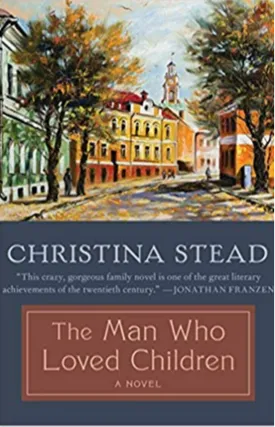Christina Stead
Christina Stead (1902-1983) was an Australian novelist, short story writer and poet who was an influential figure in international literature. Stead was a groundbreaking writer who was dedicated to exploring and challenging societal conventions. She was born in Sydney, Australia, and her career spanned more than five decades.
Stead was born to parents Louis and Sydney, who had a difficult relationship and soon separated. Stead’s father was an English teacher, and her mother was a homemaker. Stead was the eldest of four sisters and the family was financially strained. Despite the strained relationship between her parents, Stead recalled her youth fondly and often wrote about it.
An avid reader from an early age, Stead attended the University of Sydney, studying history and English. Stead left Australia for Europe in 1928, where she worked as an assistant to the Australian High Commissioner in London. She went back and forth between London and Paris, and in 1932 became part of a radical left-wing intellectual circle in Germany. She returned to London in 1934 and stayed until 1937 when she sailed to America and eventually settled in New York City. It was here that she completed some of her most notable works.
Stead wrote extensively throughout her life, her first published work being Seven Poor Men of Sydney (1934). Stead rejected the conventions of traditional fiction and sought to uncover the deeper psychological layers of her characters. She was strongly influenced by the works of D.H. Lawrence, Virginia Woolf and James Joyce, among others, and the experience of living in the 20th century informed her own writing.
Her works focus primarily on her experience of Australia and its society, though her works set in America focus on its social structure as well. Her works often contain deeply ambiguous themes of moral unrest, with primary characters that are searching for a sense of identity and purpose. Stead has been praised for her frank and unflinching descriptions of relationships and political unrest, capturing the mood and consequences of such events. Stead’s writing style is characterized by its lack of narrative order and her use of multiple points of view.
Stead’s most successful works include Letty Fox: Her Luck (1946) and The Man Who Loved Children (1940). Letty Fox: Her Luck was a semi-autobiographical work about the destructive nature of obsession. The autobiographical elements in the novel are based on Stead’s relationships with her sister, her father and her ex-husband. The Man Who Loved Children was a compelling novel about family life, told from the perspective of an Australian girl who has to adjust to life with her new American family. The work analyses the relationships between parents, children, and their respective aspirations and disappointments.
Stead was the recipient of numerous awards, including the Royal Society of Literature's Hawthornden Prize (1951) and a Lannan Literary Award (1982). She was a prolific and daring writer who, through her multifaceted characters, critiqued themes involving Australian and American culture, exploitation, feminism, and politics. She is widely praised for her skillful and evocative language, her insight into the human mind, and her daring exploration of human nature.

